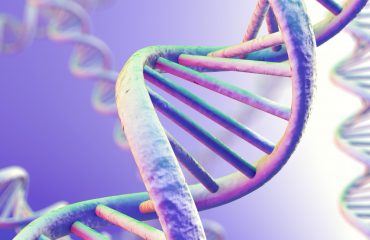Perhaps no question sparks more controversy than whether children assume sex roles as a result of their biology or the socialization they’re exposed to. The answer, of course, is probably not an “either/or” but a “with” – some combination of the socialization we receive interacts with our natural biology (itself a knot of complicated and intertwining factors) to turn us into the people we become.
Parents are quick to call “nature”, possibly because we don’t want to acknowledge that we treat our boys and girls differently. It seems that every one of us has a story about toys and young children like the one my favorite pediatrician, Dr. George Lazarus, shared with me. A very modern and enlightened parental pair presented their daughter with a set of wonderful toy trucks. Several hours after she had unwrapped the present, the parents noted that neither the toddler nor the trucks were anywhere to be found, and the child’s room was darkened and silent. The little girl met them at the door, pointing to the four trucks under the covers in her bed: “ Shh!” she cautioned her parents. “They’re sleeping.” Another mother told me, laughing, of finding her 21-month-old daughter’s shiny new Tanka front loader wearing a frilly white diaper cover taken from the laundry hamper.
As much as some dispute the existence of the “feminine” and “masculine” brain, we’re at a loss to explain how many of these same biases show up in the animal kingdom, if there’s no biological imperative. UCLA psychologists Gerianne Alexander, PhD, and Melissa Hines, PhD, did an experiment in which they presented vervet monkeys with six toys. The males played more with the truck and ball, while the females chose the doll and a pot; gender-neutral toys (a book and a stuffed dog) got equal attention. Certainly, socialization didn’t influence these subjects!
We see the interaction of socialization and biology in the following research on rats. Mother rats lick the anogenital area of male pups more than they do those of their daughters. They can detect the smell of the breakdown products of testosterone in the urine of their newborns. It seems that this licking helps neurons survive in an area of the nervous system (the SNB system), which enervates the penis. This nerve cluster is, for obvious reasons, larger in males. If the mother rat cannot smell, she won’t lick her pups as much and can’t favor her sons with more licks than she does her daughters, Her pups will grow up, whether male or female, with smaller, female-like SNB systems. In other words, the way the rats are treated (licked or not) directly influences the biology of their sex.
If it is true that human parents treat babies differently from the day they are born depending on the child’s sex, then the lesson we can take from these rats is that all the ways in which we stimulate and interact with our children may have an impact on their gender-specific differentiation and behavior.
Legato, M.J. (2005). Why Men Never Remember and Women Never Forget. Rodale Press
Ch. 6 pg. 127
Specialist in internal medicine and primary care.





